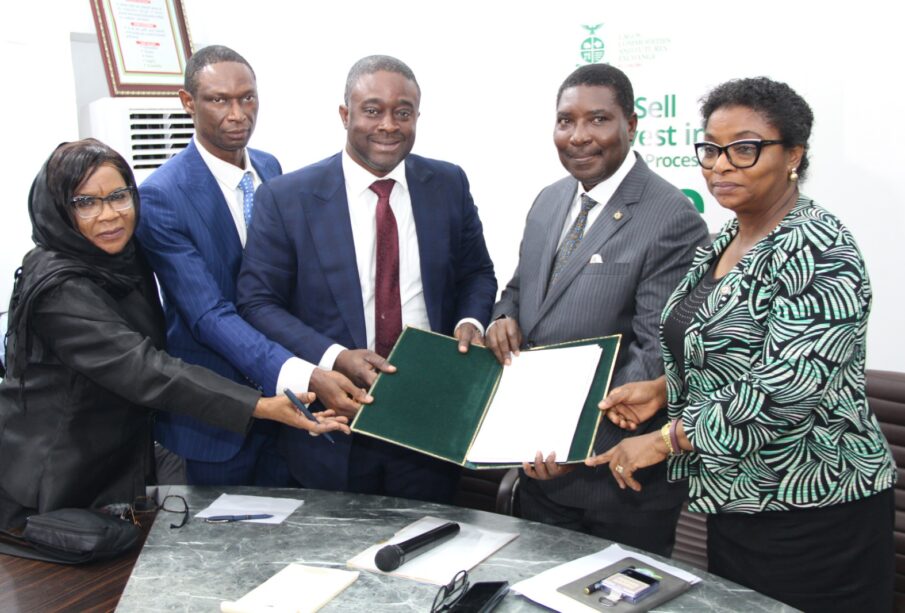
The Lagos State Government through the Ministry of Agriculture has signed an agreement with the Lagos Commodities and Future Exchange (LCFE), as well as key capital market operators.
The agreement is meant to provide sustainable finance to the commodities ecosystem through the generation of tradable financial instruments.
A statement on Monday by Nike Sodipo, the Director, Public Affairs, Ministry of Agriculture, said the signing ceremony in Alausa, Ikeja, made the state government the first sub-national to move from infrastructure finance through the capital market to commodities finance, with the objective of becoming the major hub for commodities trading for agricultural products in Africa.
The Special Adviser to the Governor on Agriculture and Rice Mill Initiative, Dr Oluwarotimi Fashola, said at the event that the partnership was a historic development that would ensure liquidity to support the continuous supply of paddy for the Rice Mill in Imota and availability of finished rice in the market.
He commended Governor Babajide Sanwo-Olu for the vision, strong support, and leadership that brought about the consummation of the partnership, just as he hailed all stakeholders that collaborated with the government to engender the successful take-off of the deal.
He said, “We are delighted with this partnership and with this development, Lagos State has become the first sub-national that will have such an engagement with commodities exchange. A lot has been said about the consumption of rice in Lagos and I am sure everyone would have had to eat rice in the course of this week.
“Our par-capital consumption of rice is the highest in Nigeria and it is one of the highest in Africa. It is about 40 kilogram per person per year and that is almost 50kg of rice per year and if that is multiplied by our population of over 22 million, the demand for rice in Lagos will be better situated.”
Fashola said the Lagos rice mill in Imota would challenge the status quo with regard to the quality of rice, adding that thefre was the need to ensure the ceaseless flow of raw material to make it function optimally.
“If we do not have rice paddy which is our major raw material, then the entire equipment and infrastructure that we have in Imota will be useless. This partnership, therefore, is about how to sustain the continuous flow of paddy into Imota.
“Imota mill will be requiring over 200,000 tonnes of paddy annually. It is not cheap. In Nigeria as of today, that is going into almost N100bn, and N100bn of taxpayers’ money being taken from the government will not be the easiest to do in any financial year but with the partnership with Commodities Exchange, we can maintain the flow of paddy to the mill, the mill continues to run, we have a comparative advantage of having a good price and at the same time, the finished rice becomes available in the market,” Fashola said.
Earlier, the Managing Director of Lagos Commodities and Future Exchange (LCFE), Mr Akinsola Akeredolu-Ale commended Governor Sanwo-Olu for not only seeing the need to bridge the rice needs of the nation but understanding the critical role of the capital market.
“At the Commodities Exchange, we understand the need to deepen the capital market and the commodities ecosystem concurrently. The Capital Market plays a critical role in providing sustainable finance to the ecosystem through the generation of tradeable financial instruments.”
Akeredolu-Ale added that the liquidity would be raised in batches, with N5bn targeted for the first batch, while N30bn would be raised within six months and thereafter the N100bn.











